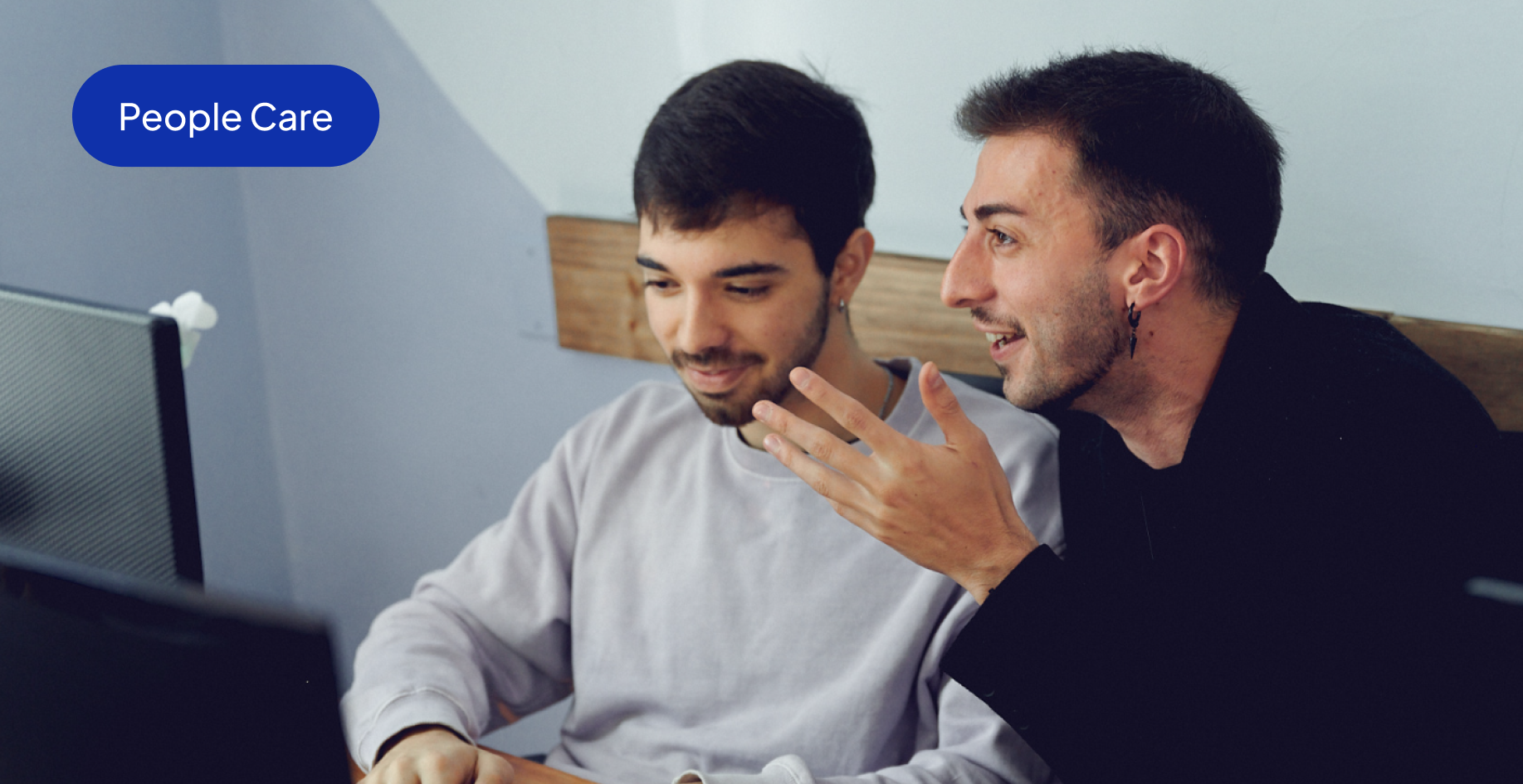On Coaches

Introduction
In this industry, each developer’s capacity to stay up-to-date and to keep growing is essential both for their personal success and for the company’s. At Neocoast, coaches are a key way in which the company contributes in this aspect, which is why in this article we wanted to share how this process works in the company.
How did coaches originate?
The main thing for us was to have a place where neocoasters would feel comfortable sharing their questions or suggestions, and also to have a figure in the company that would look out for their well-being and their motivation levels.
In the beginning, this role was fulfilled only by the owners who were the most suitable people at the time. As the company grew the role of coach began to change, and more senior developers as well as employees from other areas, such as People Care, started taking on that role. From that point, we noticed how positive it is for one of our own developers to act as coach, since they have the capability to empathize with other developers on the technical aspects, and they have a clear vision for their career path from their own experience.
It’s important to us that coaches in Neocoast have a degree of experience in the company and who knows how processes work there, since that will be vital for them to be able to help their coachees adjust their expectations and their career paths. Another fundamental aspect are their soft skills, since coaches often have to handle difficult or complex situations and it’s essential to be able to show empathy or understanding in those cases.
What does a coach do at Neocoast?
Coaches are the people in charge of looking after each neocoaster’s professional development. Starting from the first day they join the company, they are assigned a coach who will guide them along their path inside the organization. They will be responsible for answering any questions they might have in the beginning, to give them any kind of feedback generated during their first training, and to support them in their first project with a real client. From that point on, the coach will look after them during their time with the company.
Main objectives of coaches:
To help coachees define their career paths, aiming to achieve each one’s best version To look after their professional growth with the company, taking care that they stay motivated the challenged by their daily tasks To identify their needs and align them with the company’s Promote the creation of a secure place for the coachee to discuss any topic they need to
1 on 1’s
In order to achieve those objectives, coaches have an hour-long meeting with each of their coachees which we call the “1-on-1”. The coachee can choose whether they want to have that meeting once a month or once every two months. The meeting can be in person or remote; the coachee along with the coach decide what option is better for them. The meeting can also take place outside of the office, in a more relaxed setting, for example in a café or taking a stroll.
The idea of these meetings is for the coachee to own the agenda, bringing topics they’d like to talk about, since this meeting is specifically meant for them. It’s not just for discussing work-related issues: the coachees can have use that time to discuss topics that might be more personal. We believe that it’s important to know how they are doing at that level, since it could improve their motivation and performance in the company.
Some of the main topics we try to discuss in these meetings are: The motivation level with regard to their project: how they feel about their client, team, technical challenges, etc. How comfortable they are in the company: it’s essential to us that neocoasters feel like they’re a part of the company and that they’re listened to Finding what skills the coachee has and boosting them, proposing trainings and motivating them to find ones they’re interested in Eventual participation in other tasks: writing blog posts about something they’ve investigated, participating in meetups or presentations, training others, etc. Long-term goals: helping the coachee to discover what roles within the company match their passions, interests or skills
Performance Review
This is another process in which the coach plays an important part. The performance review is carried out in order to measure and analyze the progress and achievements of each neocoaster during a given period of time, with the goal of identifying areas to improve and establishing objectives.
The coach has the task of generating feedback along with the leader or trainer of the person, considering all relevant data about their performance. This includes their achievements, newly acquired skills, technical aspects, organizational skills, etc.
Once this feedback has been delivered to the coachee, the coach helps them establish goals and objectives for the following term, always taking a role of support during the process. It’s important that the coachee sees themselves as the owner of the action plan. The aim is for them to be responsible for their own professional development as well as the areas to be improved, their responsibilities, etc. The objectives are created in order to boost their professional growth and to align their expectations with the goals of the company.
Conclusion
At Neocoast the role of coach was created due to the need of having someone to provide guidance and support to each neocoaster. In our opinion, this is essential for both individual and company growth and success.
We believe this makes a difference in comparison to other companies in the same area. To us, it’s important that everyone feels supported along their career, both at Neocoast and for their future, and that someone is looking after their motivation and well-being.